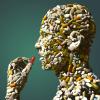There is way too much data available which shows it to work for various PD models, including the existing human studies, to dismiss or ignore it - it's just that more studies are needed for it to be considered 'absolutely proven' in humans. It's young.
However, there is also *zero* data available that counters the previous studies' claims of success in both humans and rats.
Yes, a lack of conflicting data is another consequence of 1 study in rats, and none in humans. A patent is not a study: it's written by someone who wants to sell you something, who is not required to tell you the truth if they can get away with not doing so. And the one you keep citing isn't even a
good patent; it doesn't give us data, they just summarize their "findings" in a few sentences, with next to no details about the methodology. If anything, it is suggestive, but is not a reliable demonstration by any stretch.
And as far as this not getting any attention because it's not patentable, remember that L-DOPA has been the gold standard in treating PD for over 30 years, and there are probably thousands of studies on its link with PD. Pharmaceutical companies do not control all of medical research, they just profit from it.
And again, there are many levels of probability between dismissal and 'absolutely proven.' This is somewhere in the middle. Implying that we just need a few morestudies to be
absolutely sure is misleading. There are a few studies showing success in PD models (which weren't even conducted in primates), ATP in vitro, and a larger body of research showing neurogenesis and some effect on dopamine. The last patent you posted isn't even a study, it's just someone saying that uridine can be used to treat PD because it has an effect on dopamine. I agree it has potential, but this handful of references isn't "way too much" data for anything, even by my loose experimental research standards. It's a solidly preclinical hypothesis regarding one of the most difficult diseases to treat, and going from the studies here to efficacy in humans is a
huge leap. I too hope it pans out.
As far as HSV-1 goes, mentioning there are 218,000 hits in google is irrelevant, because google is as likely to use an OR boolean as AND. A more telling figure is that in pubmed there are 61 papers for AD and 17 for PD which even
mention the two subjects together, and the few studies you've posted are pretty much the only ones which suggest it's a primary factor in the etiology. Then there are papers like
this which found HSV-1 DNA in only 2.9% and 17.5% of AD and PD patients, respectively. There could be a strong link, but again, it's a huge leap to imply that it's the current consensus of understanding. But I'm not sure why you think this theory about the pathogenesis of AD and PD is particularly important to this thread, as uridine doesn't seem to be involved with any of those mechanisms you mentioned, as far as I've read here...
As for the idea about uridine replacing L-DOPA therapy: L-DOPA is one biosynthetic step away from dopamine, and it's usually coadministered with a medication that will allow it to cross the BBB quite effectively. I doubt uridine will be able to effect as much dopamine release as that, and even if it does, there's still the issue of whether there are enough dopamine precursors to maintain the heightened release, and if the release will be in the appropriate parts of the brain. If anything, a slightly lower dose of L-DOPA might be warranted, but complete replacement seems unfounded given the current data.
Also, I'm wondering who the companies are who have patented this substance for treating PD. Or were you referring to the two patents you've posted a few times recently?
Edited by chrono, 23 November 2011 - 04:44 AM.























































